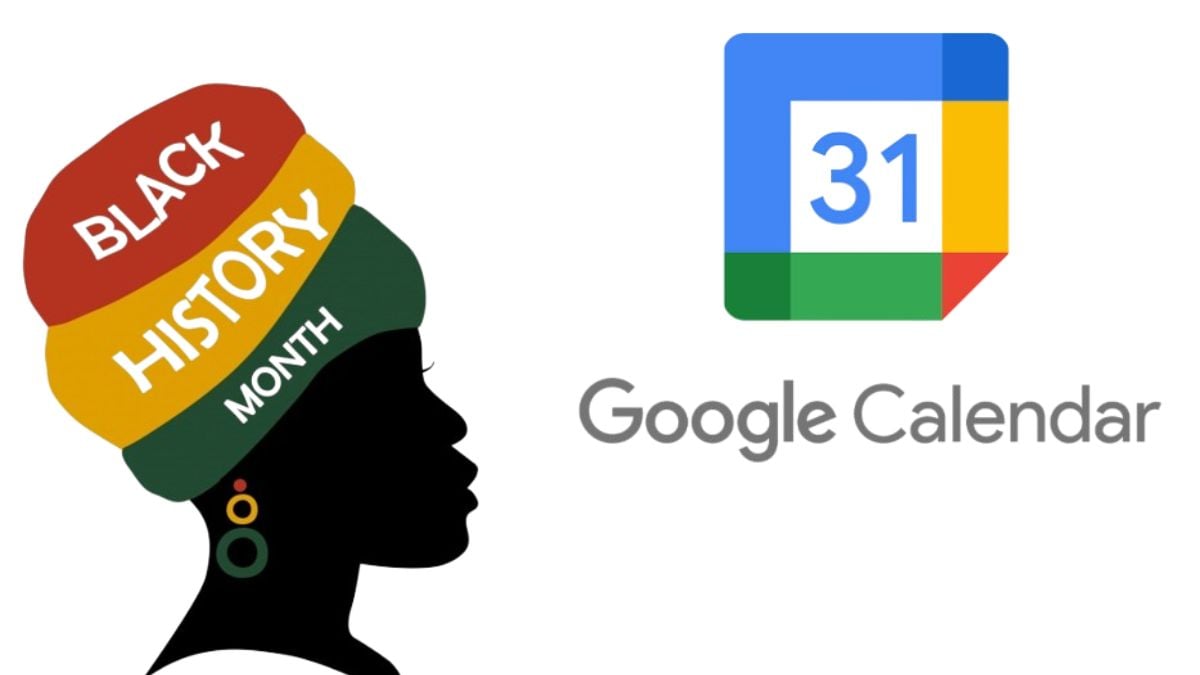
Amidst the controversy over changing the name of the Gulf of Mexico to ‘Gulf of America’, Google removed several cultural celebrations from its Google Calendar app, including Black History Month, which has led to criticism against the company.
This move coincides with Donald Trump’s return to the U.S. presidency, who has already signed executive orders to remove benefits from Black and LGBTQ+ communities. Google has justified the removal of these cultural references; here is what they said.
Why did Google Calendar remove Black History Month?
It has been reported that starting this month, Google Calendar no longer includes references to Black History Month, Pride Month, or Women’s History Month, which were previously marked at the beginning of February and March.
In a statement, a company spokesperson explained that for some years, the Google Calendar team had manually added several cultural celebrations worldwide; however, adding hundreds of dates manually was not sustainable, so they chose to stop doing so.
ALSO READ This canned tuna sold at Costco, Walmart and other stores is recalled; this is the reason
Which important cultural dates did Google Calendar remove?
The app has omitted several dates related to Black, Indigenous, Jewish, Hispanic, and LGBTQ+ communities. Some of the most significant ones include:
- Pride Month: Celebrates the Stonewall riots on Christopher Street, a pivotal event in the fight for LGBTQ+ rights. This date has become a symbol of freedom and equality for the community.
- Black History Month: A month dedicated to highlighting the history, struggles, and contributions of Black people in the United States, celebrating their impact on society.
- International Holocaust Remembrance Day: This day remembers the liberation of Auschwitz-Birkenau in 1945 by Soviet forces, honoring the victims of the Nazi genocide.
- Jewish Heritage Month: A time to celebrate the significant contributions of Jewish communities to the fabric of life in the United States.
- Hispanic Heritage Month: A month that highlights the richness of Hispanic culture and its influence on history and the fight for independence.
- Native American Heritage Month: A period to honor the contributions, traditions, and history of Indigenous peoples in the United States.
Google eliminates diversity, equity, and inclusion goals
Despite the company’s statements, users feel these actions align with the political reforms implemented by President Donald Trump, who recently began eliminating diversity hiring goals.
In 2020, Google committed to improving diversity in its workforce by setting goals such as increasing the representation of leaders from underrepresented groups by 30% by 2025.
However, in its most recent annual report submitted to the Securities and Exchange Commission (SEC), the company removed a statement that emphasized its commitment to diversity, equity, and inclusion as a fundamental part of its strategy.
Despite this, Google will maintain certain internal programs, such as the “Trans at Google”, “Black Googler Network”, and “Disability Alliance” groups, which continue to influence decisions related to products and policies. Nevertheless, the company is reevaluating its DEI (diversity, equity, and inclusion) initiatives to align with new regulations.
Among the adjustments made to align with the Trump administration, in late January, Google changed the name of the Gulf of Mexico to ‘Gulf of America’ in Google Maps. Additionally, the company announced it would begin using the name ‘Mount McKinley’ for the mountain in Alaska, which is currently known as Denali.
What is Black History Month, and why is it celebrated?
The origin of Black History Month dates back to the early 20th century when historian Carter G. Woodson, frustrated by how the history of Black people in the United States was either ignored or distorted, decided to take action. Woodson firmly believed that the world needed to know the contributions of the African American community to counter the false and harmful arguments of racism.
In 1915, just over 50 years after the abolition of slavery in the United States, Woodson founded the Association for the Study of African American Life and History, which later changed its name to the Association for the Study of African American Life and History (ASALH). He also organized, as part of the first Negro Progress Exposition, an exhibition on Black history (the first of its kind) and later founded the first journal dedicated to Black history, The Journal of African American History.
Woodson’s main goals were twofold: first, for the Black community to take pride in its history and heritage, and second, to combat the racist prejudices and arguments that supported the notion of Black inferiority through education. In 1920, he took a further step by encouraging his academic colleagues to celebrate a week dedicated to Black literature and history.
Woodson’s initiative was well-received, and in 1926, he officially established “Negro History Week” in February, coinciding with the birthdays of President Abraham Lincoln (February 12) and abolitionist Frederick Douglass (February 14).
Five years later, in 1976, President Gerald Ford officially recognized Black History Week, highlighting its significance in an institutional message. That same year, thanks to the expansion of the ASALH, Black History Month was officially established, marking the beginning of this annual celebration throughout the month of February.









